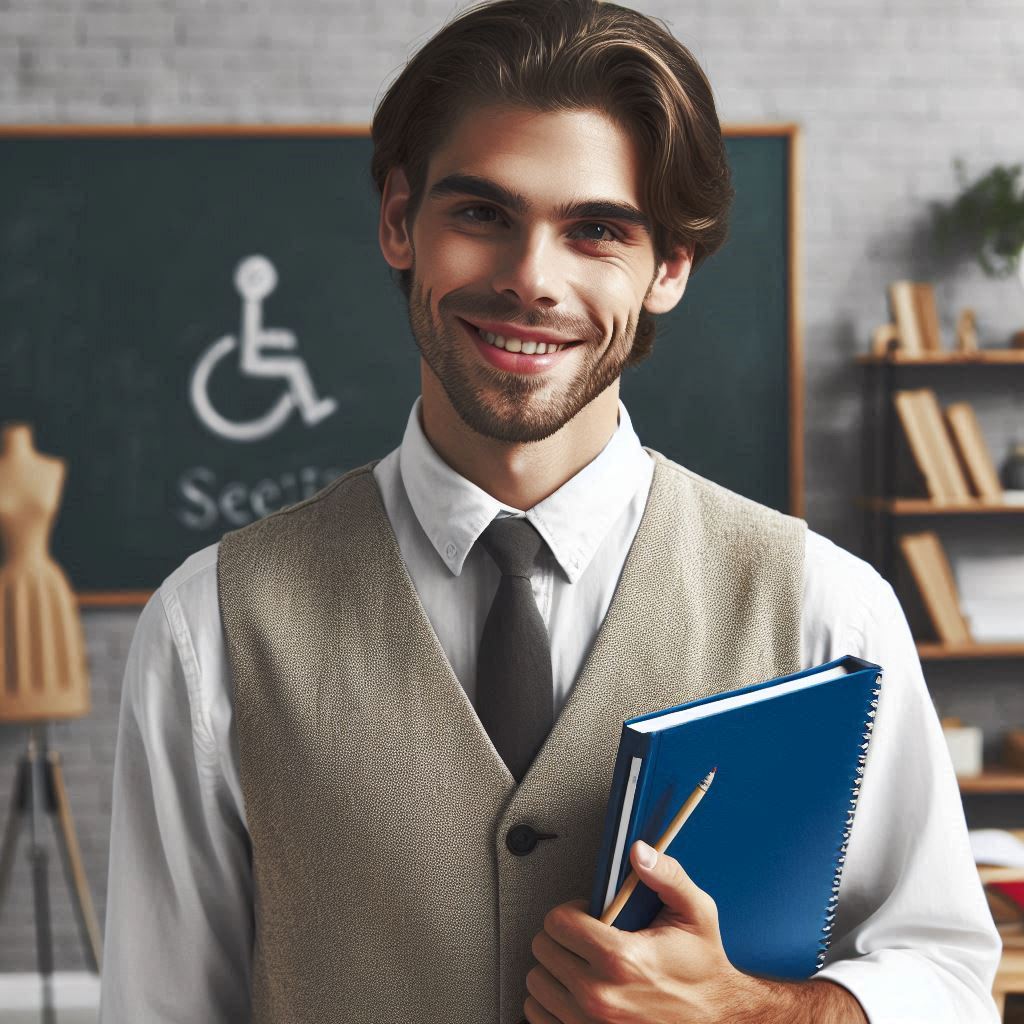Introduction
Social skills are crucial for special education students, enhancing their ability to interact and communicate effectively.
These skills help students form friendships, collaborate with peers, and navigate social situations confidently.
Fostering social skills in special education students empowers them to build meaningful relationships and improves their academic performance.
Developing these skills promotes inclusion and increases opportunities for future success.
Fostering social skills involves several key strategies. Firstly, creating a supportive and structured environment is essential.
Teachers can encourage positive interactions by modeling appropriate behavior and providing clear expectations.
Social stories and role-playing exercises offer students opportunities to practice social scenarios in a safe setting.
Secondly, peer interaction plays a vital role in developing social skills.
Teachers can facilitate peer-mediated interventions, where students work together in structured activities.
This approach encourages teamwork and empathy and builds communication skills.
Group activities, such as cooperative learning projects, also foster collaboration and improve social competence.
Additionally, incorporating visual supports can enhance communication for special education students.
Visual aids, like picture schedules and communication boards, aid in understanding social cues and expressing emotions.
These tools bridge communication gaps and empower students to participate actively in social interactions.
In essence, fostering social skills in special education students is essential for their holistic development.
By implementing structured environments, peer interactions, and visual supports, teachers can effectively nurture social competence.
These strategies equip students with the skills they need to thrive in social settings and beyond.
Throughout this blog post, we will explore these strategies in detail, providing practical tips for educators and caregivers.
Understand the individual needs of each student
When it comes to fostering social skills in special education students, one of the most crucial steps is to understand the individual needs of each student.
Importance of Taking a Personalized Approach to Fostering Social Skills
Educators should focus on each student’s unique needs when fostering social skills.
Transform Your Career Today
Unlock a personalized career strategy that drives real results. Get tailored advice and a roadmap designed just for you.
Start NowA personalized approach helps educators tailor strategies to suit each student’s learning style.
This method ensures that interventions are effective and cater to the student’s specific social challenges.
By recognizing individual differences, educators can create an environment that encourages personal growth.
This approach empowers students to build confidence and engage positively with others.
Personalization acknowledges that every student’s journey in developing social skills is unique.
Tailoring interventions allows educators to address specific issues and encourage overall improvement.
In special education, this approach makes a significant difference in social skill development.
Need for Educators to Understand the Specific Challenges and Strengths of Each Student
Educators should understand each student’s strengths and challenges to effectively foster social skills.
Recognizing individual strengths allows educators to build on existing capabilities.
Understanding challenges helps identify areas where students require additional support.
By focusing on both strengths and challenges, educators can develop balanced interventions.
This dual approach ensures that students receive support that nurtures growth and development.
Educators should observe students closely to gain insights into their social interactions.
A clear understanding of each student’s profile aids in designing suitable social skill activities.
Tailoring strategies to individual needs leads to more meaningful and sustainable improvements.
Role of Assessments in Identifying Areas for Improvement
Assessments play a crucial role in identifying areas for improvement in social skills. They provide valuable data on a student’s current social capabilities.
Educators can use assessments to pinpoint specific areas where students struggle.
This information allows for the development of targeted interventions to address these challenges.
Regular assessments help monitor progress and make necessary adjustments to intervention strategies.
They provide a structured way to evaluate the effectiveness of social skills programs.
Transform Your Career Today
Unlock a personalized career strategy that drives real results. Get tailored advice and a roadmap designed just for you.
Start NowAssessments guide educators in tailoring their approaches to meet each student’s needs.
By identifying areas for improvement, assessments facilitate a focused approach to social skill development.
Read: Educational Consultant vs. School Counselor: Differences
Create a supportive and inclusive environment
It is crucial to create a safe and welcoming space for special education students.
This environment allows students to feel comfortable and supported in their learning journey.
By fostering a positive atmosphere, students are more likely to engage and participate in activities.
Importance of creating a safe and welcoming space for special education students
- Special education students may face unique challenges and require additional support.
- Creating a safe and welcoming environment helps these students feel valued and accepted.
- It promotes a sense of belonging and encourages students to express themselves without fear of judgment.
Tips for promoting empathy and understanding among classmates
- Encourage open communication and discussions about differences and similarities among students.
- Teach students about empathy through activities that promote understanding of each other’s perspectives.
- Model empathy and inclusivity by treating all students with respect and kindness.
Ways to encourage collaboration and teamwork in the classroom
- Assign group projects that require students to work together towards a common goal.
- Foster a sense of community by celebrating each student’s unique strengths and contributions.
- Provide opportunities for students to practice teamwork skills such as communication, problem-solving, and cooperation.
Read: Tips for New Special Education Teachers Starting Out
Teach explicit social skills
Social skills that are important for special education students to learn
Special education students often struggle with social interactions, making it crucial to explicitly teach them social skills.
Here are some key social skills that are important for special education students to learn:
- Active listening: Teach students how to focus on the speaker, maintain eye contact, and provide verbal and nonverbal cues to show that they are paying attention.
Role-playing activities can be helpful in practicing active listening. - Emotional regulation: Provide students with strategies to manage their emotions, such as deep breathing exercises or visualization techniques.
Encourage them to express their feelings in a healthy and respectful manner. - Problem-solving: Help students develop problem-solving skills by teaching them how to identify the issue, brainstorm possible solutions, and evaluate the outcomes.
Role-playing scenarios can be used to practice problem-solving in real-life situations. - Self-advocacy: Empower students to speak up for their needs and rights.
Teach them how to communicate their preferences, ask for help when needed, and assert themselves in a respectful way.
Role-playing can be beneficial in practicing self-advocacy skills.
Strategies for teaching these skills in a clear and structured manner
When teaching these social skills, it is important to provide clear and structured instruction.
Break down each skill into manageable steps and use visual aids or prompts to reinforce learning.
Additionally, incorporating role-playing and other hands-on activities can make the learning experience more engaging and interactive for special education students.
Benefits of incorporating role-playing and other hands-on activities
Role-playing allows students to practice social skills in a safe and controlled environment.
It gives them the opportunity to apply what they have learned in real-life scenarios and receive feedback on their interactions.
This can help build their confidence and improve their ability to navigate social situations effectively.
Hands-on activities, such as group projects or cooperative games, can also promote social skill development.
These activities encourage collaboration, communication, and teamwork, fostering positive social interactions among students.
By engaging in hands-on activities, special education students can enhance their social skills in a fun and interactive way.
Overall, teaching explicit social skills is essential for special education students to thrive in social settings.
By outlining specific skills, providing clear strategies for instruction, and incorporating role-playing and hands-on activities, educators can help students develop the social skills they need to build meaningful relationships and succeed in various social situations.
Transform Your Career Today
Unlock a personalized career strategy that drives real results. Get tailored advice and a roadmap designed just for you.
Start NowRead: Impact of Educational Consultants on School Programs

Encourage social interactions
Tips for promoting peer interactions and friendships
Promote peer interactions by creating inclusive environments. Encourage special education students to engage in collaborative activities.
Pair students with peer buddies who share similar interests. Organize social events that allow students to interact and bond.
Teach students conversational skills, like starting and maintaining a conversation. Encourage active listening to understand and respond to others.
Use role-playing to practice social scenarios and improve confidence.
Foster a welcoming atmosphere by highlighting each student’s unique strengths and interests.
Benefits of group activities and cooperative learning projects
Group activities foster teamwork and communication skills among students.
Cooperative learning projects encourage students to collaborate and problem-solve together.
These projects help students learn from each other’s strengths and perspectives. Participation in group activities enhances students’ confidence and self-esteem.
Students develop empathy as they work with peers from diverse backgrounds.
Cooperative learning encourages sharing ideas, which promotes creativity and critical thinking.
Group activities create a sense of belonging and community among students. Students learn how to give and receive constructive feedback.
How to facilitate social interactions in both structured and unstructured settings
Structured settings provide clear guidelines for social interactions. Use structured activities, like group games, to guide social skills development.
In structured settings, set clear goals for social interactions and provide feedback. Offer praise and encouragement to reinforce positive social behaviors.
In unstructured settings, allow students to explore social interactions independently. Supervise unstructured interactions to ensure inclusivity and support.
Provide opportunities for students to make choices and decisions during free play.
Encourage students to initiate interactions and express their needs and preferences.
Adapt facilitation techniques based on individual student needs and social goals.
Read: Collaboration Strategies with General Education Teachers
Use positive reinforcement and praise
Positive reinforcement is a key strategy in fostering social skills in special education students.
Transform Your Career Today
Unlock a personalized career strategy that drives real results. Get tailored advice and a roadmap designed just for you.
Start NowIt involves rewarding or acknowledging desired behaviors to encourage their repetition.
When working with special education students, positive reinforcement can be a powerful tool to motivate them to engage in appropriate social behaviors.
By highlighting and praising their positive actions, students are more likely to continue demonstrating those behaviors in the future.
Importance of using positive reinforcement
Positive reinforcement helps special education students understand which behaviors are desirable and which are not.
It reinforces the idea that positive social interactions lead to positive outcomes, making it more likely that students will exhibit these behaviors consistently.
By consistently using positive reinforcement, educators can create a supportive environment where students feel encouraged to participate in social activities and build meaningful connections with their peers.
Examples of effective praise and rewards
- Verbal praise: Simple statements such as “Great job!” or “I’m proud of you!” can go a long way in boosting a student’s confidence.
- Tangible rewards: Offering small rewards like stickers, extra playtime, or special privileges can motivate students to continue practicing positive social skills.
- Group recognition: Acknowledging a student’s good behavior in front of their peers can reinforce the idea that social skills are valued and appreciated by others.
Benefits of building self-esteem and confidence
Positive feedback and reinforcement not only encourage appropriate social behavior but also help in building self-esteem and confidence in special education students.
When students receive praise and rewards for their efforts, they develop a sense of achievement and accomplishment, which boosts their self-esteem.
This, in turn, motivates them to continue working on improving their social skills.
By building self-esteem and confidence through positive reinforcement, educators can help special education students feel more comfortable and secure in social situations, ultimately leading to more successful interactions with their peers.
Collaborate with parents and support staff
Importance of involving parents and support staff in the process of fostering social skills
Involving parents and support staff is crucial in fostering social skills in special education students.
Parents play a key role in the overall development of their child, so it is essential to collaborate with them to ensure consistency and reinforcement of social skill strategies both at school and at home.
Ways to communicate with parents and caregivers about social skill development
Effective communication with parents and caregivers is vital for successful social skills development.
This can be achieved through regular meetings, progress reports, and open channels of communication to discuss goals, challenges, and successes.
By keeping parents informed and involved, they can better support their child’s social growth outside of school hours.
Benefits of a team approach in supporting the social-emotional growth of special education students
A team approach that includes parents, teachers, support staff, and other professionals is highly beneficial for the social-emotional growth of special education students.
Each member brings unique perspectives and expertise to the table, allowing for a comprehensive and holistic support system for the student.
This collaborative effort ensures that the student receives consistent and tailored support in improving their social skills.
By fostering collaboration with parents and support staff, educators can create a strong support network for special education students to thrive socially and emotionally.
The combined efforts of all stakeholders contribute to a nurturing and inclusive environment where students can develop their social skills effectively.
Transform Your Career Today
Unlock a personalized career strategy that drives real results. Get tailored advice and a roadmap designed just for you.
Start NowConclusion
To foster social skills in special education students, it is crucial to create a supportive and inclusive environment.
Encourage students to participate in group activities to enhance their communication and collaboration skills.
Use positive reinforcement and praise to motivate students and boost their self-esteem.
Model appropriate social behaviors and provide clear expectations for interactions.
Incorporate social skills training into the curriculum to help students practice and develop these skills consistently.
Additionally, collaborate with parents and other professionals to reinforce social skills learning outside of the classroom.
By prioritizing social skill development, educators can help special education students build relationships, navigate social situations, and succeed academically and personally in the long term.
It is essential to recognize that strong social skills are key to students’ success and well-being, both in school and beyond.
Educators are encouraged to continue investing time and resources in fostering social skills to empower special education students and set them up for future success.
Let’s work together to create a more inclusive and supportive learning environment for all students.
[E-Books for Sale]
The Big Book of 500 High-Paying Jobs in America: Unlock Your Earning Potential
$19.99 • 500 High-Paying Jobs • 330 pages
Explore 500 high-paying jobs in America and learn how to boost your career, earn more, and achieve success!
See All 500 High-Paying Jobs of this E-Book
1001 Professions Without a Degree: High-Paying American Jobs You Can Start Now
$19.99 • 1001 Professions Without a Degree • 174 pages
Discover 1001 high-paying jobs without a degree! Unlock career tips, skills, and success strategies for just $19.99!




